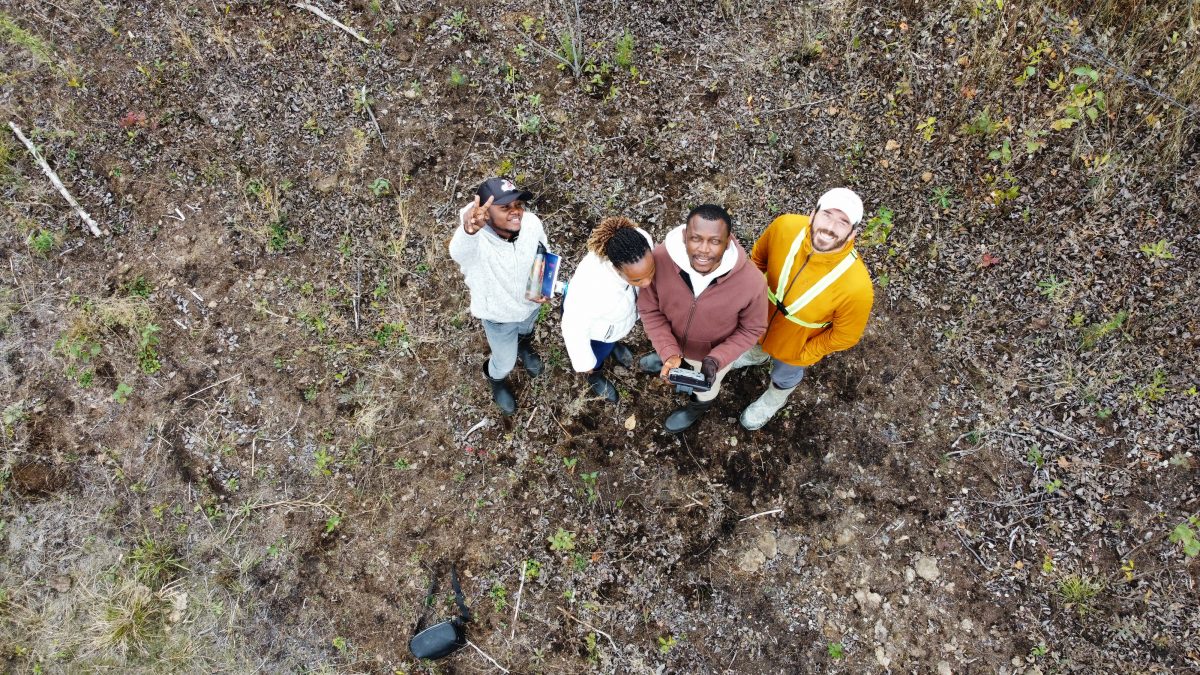A Brandon University researcher known for his work on restoring peatlands is part of a team that has secured $1,466,449 in federal funding to look at polluted peatlands in northern Ontario.
Dr. Pete Whittington, Associate Professor of Geography & Environment at BU, joins Dr. Colin McCarter, Assistant Professor at Nipissing University and Canada Research Chair in Climate and Environmental Change, who was awarded an Alliance Missions Grant from the Natural Sciences and Engineering Research Council of Canada announced this month. Also on the team are Drs. Ellie Goud (St. Mary’s University), Nathan Basiliko (Lakehead University), and collaborators Drs. John Gunn and Peter Beckett (Laurentian University).
The researchers are working with the City of Greater Sudbury and Vale Base Metals to examine the soil carbon stocks and peatland emissions in the northeastern Ontario region to determine whether traditional or new restoration techniques are needed for peatland that are still not recovering from historical pollution.
“Peatlands are an amazing type of wetland that store tonnes of carbon into the ground for thousands of years. Most of my research has been in restoring harvested peatlands in Manitoba, so I’m interested to see if we can adapt those techniques to the metal contaminated peatlands around Sudbury, as they haven’t been harvested, but are still very disturbed,” Dr. Whittington said. “This research focuses on peatlands that have been impacted by atmospheric pollution that’s linked to other activities in the area, like mining.”
Sudbury, Ontario is one of the world’s largest metal mining centres and historically was among the largest global point source of sulphur dioxide and metal particulate pollution. Ecosystem reclamation is a prominent goal of the City of Greater Sudbury’s Regreening Program and both Vale Base Metals and the City of Greater Sudbury have a goal of net zero carbon by 2050. The information gathered through this research will be important to achieving net zero carbon within the northeastern Ontario region, and broadly in Canadian and global mining-impacted landscapes.
“Clean air and water are fundamental to human well-being, and restoring key ecosystems like peatlands can help,” said Dr. Bernadette Ardelli, BU’s Vice-President (Research and Graduate Studies). “This major grant funding recognizes that Brandon University researchers like Dr. Whittington are among the top minds in Canada working to tackle challenges that face us all.”
NSERC Alliance Missions grants are awarded to university researchers collaborating with private-sector, public-sector or not-for-profit organizations and support research that generates new knowledge and accelerates the application of research results to create benefits for Canada.
Contact
- Brandon University
- communications@brandonu.ca
To receive any BU publication in an alternate format please contact Communications@BrandonU.ca
About BU
Success is built at Brandon University. Our growing, progressive campus welcomes a diverse and inclusive community that combines proud tradition with shared ambition. Through our excellence in teaching, research, and scholarship, we educate students to make a meaningful difference as engaged citizens and leaders. Join us at BrandonU.ca.
